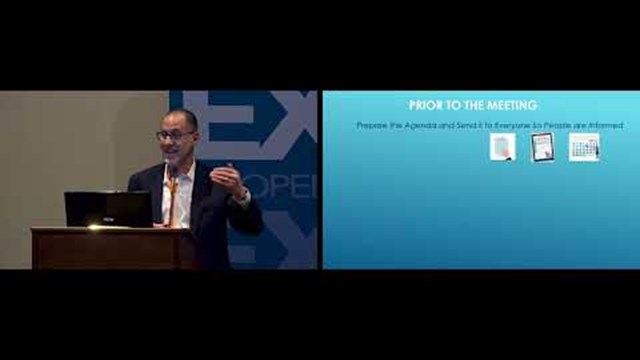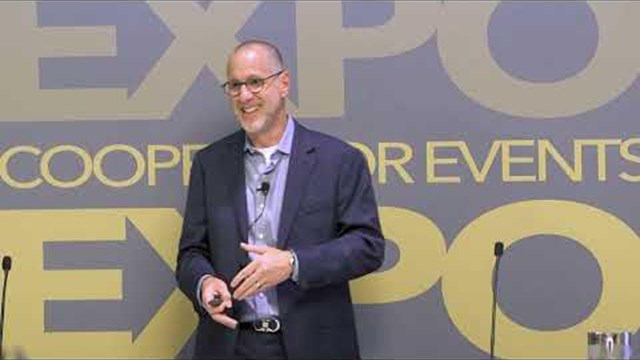Talk to anyone familiar with common-interest community governance anywhere in the country, and they will tell you the same thing: apathy is rampant among residents of co-ops, condos, and HOAs. Not only is it difficult to get owners and shareholders to run for their boards of directors, but it’s a struggle to even get them to show up to the once-a-year meetings held to elect those board members and to update the community on what is happening in their home and property.
This is a problem. According to the Foundation for Community Association Research, as of 2022, 39% of Americans lived in community associations, with that percentage growing annually as this type of housing becomes dominant throughout the country. The Foundation’s data reveal that between 1970 and 2022, the number of community associations in the U.S. increased by a factor of 36.5, from 10,000 to 365,000. The number of residents in these communities went from 2.1 million in 1970 to 75.5 million in 2022. According to data from the U.S. Census Bureau, approximately 84% of newly built, single-family homes sold that year were part of a community association.
With more and more people joining into the not-so-exclusive club of common-interest communities, it seems counterintuitive that the actual “interest” part of the equation is so often lackluster. After all, the smooth governance and prudent physical and financial management of shared property not only maintains, but increases the value of that property—and that’s to everyone’s benefit. So how can boards and managers of these communities encourage residents to fulfill their membership obligations by being informed, participatory owners/shareholders? And how can annual and informational meetings be structured so they’re run more orderly, efficiently, and productively—perhaps making them more appealing to attend?
Agenda, Agenda, Agenda
Top of the list for holding efficient and productive meetings is setting—and sticking to—a reasonable and relevant agenda. In some localities, there is a legal requirement for an agenda to be included with the notice of meeting; otherwise, any actions taken, even the election of board members, can be invalidated.
Charles A. Ryan, partner with Pilicy & Ryan, a law firm in Watertown, Connecticut, says that in his state, “We’ve adopted the Common Interest Ownership Act, which governs both board meetings and unit owner meetings. It mandates that notices of unit owner meetings be provided no less than 10 and no more than 60 days prior to the unit owner meeting [and] include the date, time, location, and agenda of the meeting.”
For a shareholder or unit owner meeting, he says, the agenda might consist of calling the meeting to order, a financial update, a capital projects and/or community update, a Q&A session, and adjournment. There should be a specified start and end time for the meeting, and both should be adhered to strictly for the sake of everyone’s time.
Even in places that don’t mandate an agenda, attorneys and property professionals still recommend creating and distributing one—both for the efficiency aspect, and to encourage attendance. For example, Chicago-area lawyer James Arrigo of the Wheaton, Illinois, law firm Rathje Woodward says that in his state, “While you don’t have to put the entire agenda on a notice, I always encourage boards to include a little more info, because it might entice someone with particular interests to attend.” (He adds that the removal of a director is one item that does need to be included in the notice of meeting if it is a planned topic of discussion and/or vote.)
Thomas Chilenski, president and CEO of Cedarcrest Property Management in Fairfield, New Jersey, agrees, adding that distributing an agenda to the shareholders/unit owners in advance gives everyone an opportunity to be prepared and to set expectations. “Meetings can often get off track when there is not a clear posted agenda for the meeting,” he advises. “A detailed meeting agenda should be posted in advance of the meeting detailing the items that will be discussed. Have an agenda to follow, and stick to it during the meeting.”
Hit the Deck
Creating, distributing, and following an agenda also helps quell those who tend to use meetings as forums to air their personal grievances or unit-specific issues, says Neil Davidowitz, Esq., president of Manhattan-based management firm Orsid Realty Corp. He adds another layer of preparation—recommending the use of a presentation deck for every meeting, whether it’s convened on Zoom or in person.
“You don’t want to let somebody kidnap your meeting,” says Davidowitz. “A professional, buttoned-up slide deck really quiets the dissidents. The more professionally you present—and you’re really giving in-depth information, fully transparent and open—it takes the wind out of the sails of the dissidents, because the majority of the [attendees] say, ‘Oh my God, the amount of detail in this report is phenomenal.’”
The detail should be practical and informative, and ideally conveyed by a professional or a board member with specific knowledge of the topic—“the comptroller or treasurer for the financial slides, the property manager or project manager for capital project updates,” Davidowitz continues. And all the experts agree that 90 minutes should be ample time to present such information, including a predetermined period for Q&A.
Speaking of Q&A, most of the experts consulted for this article stress the importance of holding attendee questions until the end of the meeting, and conducting the Q&A in an organized and time-restricted manner, disallowing personal or unit-specific questions. Allowing—even encouraging—owners and shareholders to submit questions in advance is another time-saver, as well as an opportunity to conduct proper research to answer submitted questions accurately and completely.
For questions that happen live at the meeting, “Put time limits on questions, and restrict people to only one question until everyone else has had an opportunity to ask theirs,” advises Chilenski.
“If it’s an in-person meeting,” adds Davidowitz, “we say, ‘If you have personal questions, we’ll meet with you after the meeting is over. If it’s Zoom, we suggest people email us, but we don’t want people’s personal apartment issues to take over the meeting.”
Encouraging Attendance
On the topic of Zoom, our sources indicate that the platform and its ilk have certain benefits—and a few drawbacks—when it comes to shareholder and unit owner meetings. Davidowitz contends that it’s easier to control the meeting, especially when only presenters have their mics on. “There isn’t the opportunity for interruptions or cross-talk, and people are forced to wait their turn,” he says of video conference meetings. “And those who are there primarily to hear their own voice or to rile a crowd—they’re forced to the sidelines.”
Many residents prefer meetings on platforms like Zoom, say the pros, as it allows them to attend while accomplishing other tasks, or while away on business or vacation. In our over-scheduled lives, this flexibility benefits not only the residents, but also the board members, management staff, and other professionals who may need to attend the meetings.
According to Richard Brooks, partner at Braintree, Massachusetts, law firm Marcus, Errico, Emmer & Brooks, virtual meetings are simply the way of the future. “The next generation, they don’t want to go to meetings—they want to text. That’s how it is nowadays. So electronic voting and electronic meetings are what’s happening,” he says.
But to accommodate owners and shareholders of multiple generations, says Scott Smiler, attorney with New York City law firm Gallet Dreyer & Berkey, “You also want to be cognizant of the fact that not everybody in the building, depending upon the demographic, is comfortable going onto Zoom or something like that. They might not have that technological savviness, or they just might not be comfortable doing it.”
Davidowitz adds that despite the convenience, meeting online can also take away the social aspect of annual and informational meetings that many residents expect and enjoy. “Those residents may be encouraged to attend an in-person meeting if it’s tied to an event, like honoring a retiring doorman or celebrating an employee’s 25th year with the building,” he says. “I like the idea of making it kind of a social event, with cheese and platters. Just something social in addition to business and meeting. People want to partake in that.”
Other Perks
Beyond offering light food and beverages—which are always a draw—can other incentives be offered to encourage people to attend meetings?
Andrew Brucker, partner at the New York office of law firm Armstrong Teasdale, says that he represented a co-op that would auction off a prize at each annual shareholder meeting. Another client building has a small prize giveaway to the first ten or so shareholder attendees.
But from his point of view, the biggest sweetener for attendance should be simply the opportunity to protect what is most owners’ most significant financial investment. “The purchase of an apartment is the biggest investment most people will ever make,” Brucker points out. “Keeping an eye on their investment just simply makes common sense.”
Darcey Gerstein is Associate Editor and a Staff Writer for CooperatorNews.










Comments
Leave a Comment